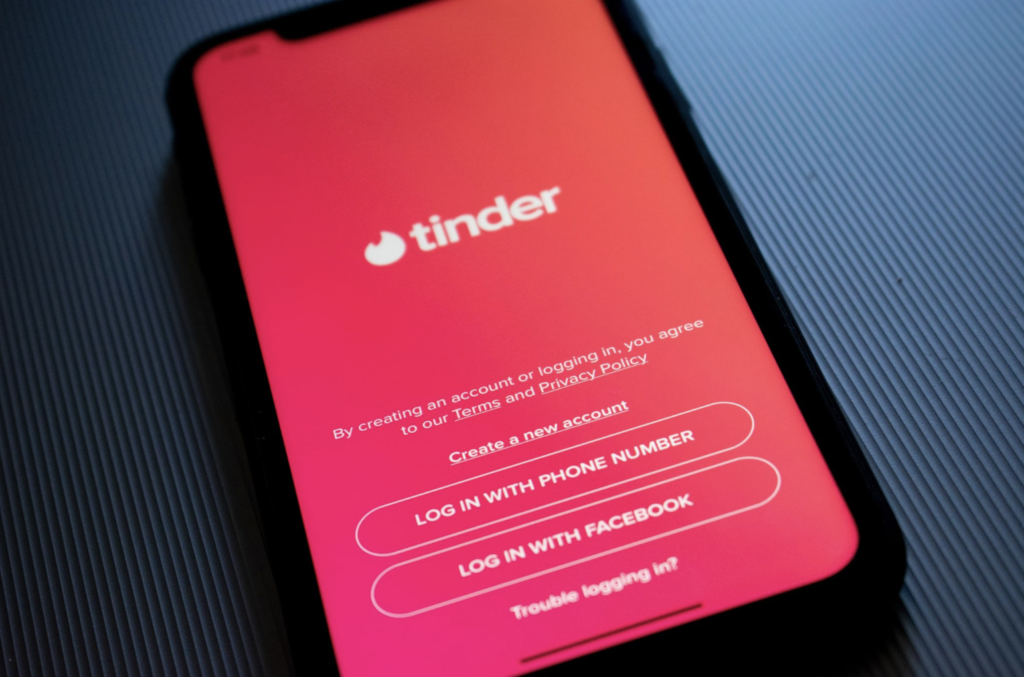Tinder, Bumble, Grindr, eHarmony, Hinge, and everything in between. Whether we want to admit or not, dating apps have completely revolutionised the ways we form romantic connections with people. Approximately 60% of dating app users are aged between 18 and 34 as of 2023, and it’s no surprise: without the need of any transport, mutual friends or movement (in fact, you can do ALL this within the comfort of your own house), dating apps have made dating a whole lot easier.
And possibly, it’s made dating more dangerous.

What does digital dating look like? In a time where smartphones and social media are rife, dating apps are the new normal. This can expand to virtually any type of relationship. Dating apps can be fun, exciting and allow people to experiment with themselves, their sexuality and learn what defines their perfect companion.
The use of dating apps and online activity have even more recently started to be embedded in classroom sex ed talks, which is definitely a win.
But in terms of internet safety, dating apps are a new frontier for people. Dating apps constitute us meeting with people who are, in the beginning, strangers. We’re dealing with different dangers than what previous generations had, expanding from the sexting ethics, expectations, physical and verbal threats and even abuse. We’re being forced to grapple with online predators who use dating apps to hunt down victims (check out this post to read more about the highly problematic side of dating apps).
What safety reforms have dating apps already imposed? Many dating apps require all new users to agree to a series of specific conditions by signing a contract before creating their account. Some of these conditions include users reporting any harassment, threats, fetishisation or harmful behaviour, targeted either towards themselves or others.
Other conditions that must be agreed to centre around users meeting in person. For example, Tinder details that matched couples meet and stay in public, tell a friend or family member about the plans and get to know one another before making any drastic decisions. Bumble prompts people to verify their profiles by using a newly-implemented photo verification feature. It also pushes people to not give out too much information about themselves upon first meeting. Grindr specifically references “sextortion”, whereby scammers may attempt to use explicit messages and video content against a matched user.
After agreeing to these terms and conditions, you are free to enter the app and begin matching with people. You are automatically expected to use the app responsibly and care.

So, are these reforms enough to keep you safe? These reforms have been an important step in keeping users vigilant and orchestrating a change definitely needed in the digital dating sphere. These apps, to an extent, have taken on some moral responsibility to take care of the privacy, dignity and safety of their users.
But, these reforms are still NOT enough.
Firstly, the descriptions of appropriate conduct and usage of the apps being disclosed ONLY in the terms and conditions (and prior to users officially having an account) is problematic, considering that these mostly go ignored by users who simply click an “Agree” button.
With this assumption, it’s fair to say that many users might not be able to identify what behaviour counts as dangerous, abusive or threatening, or know the necessary precautions or steps to get assistance.
Additionally, in the circumstance of a victim NOT doing these safety steps and still experiencing a traumatic event, these dating apps may unintentionally blame users for the problems they face as a result of not reading their rights written in the TCs. Bumble’s verification feature is limited in checking to see a user’s activity history or criminal checks.
What can you do? This conclusion might feel a bit grim, but you can enhance your safety when using these apps by:
- Remembering your right to safety and dignity at ALL times. No matter what, you have every right to assert your own boundaries and exit the situation if these are not prioritised.
- Educating yourself and others that consent extends to online dating through primary prevention. Just because you match with someone, doesn’t mean you should be expected to engage in all sexual activities with them!
- Clearly communicate with your online partner(s) about what you expect from your online and in-person experiences. When it doubt about your partner’s expectations, ask!

